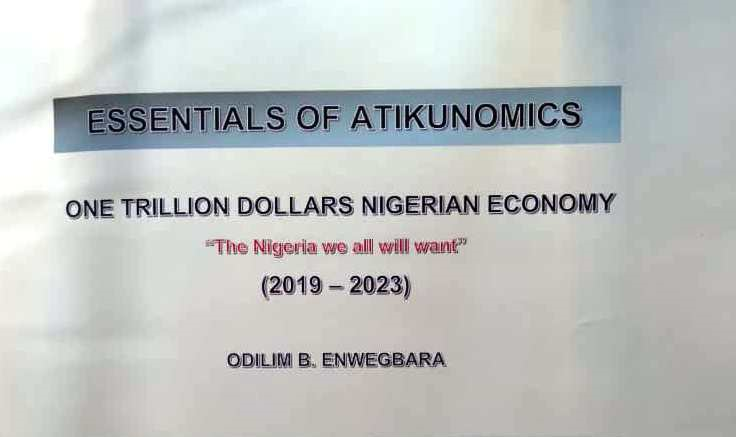Basil Odilim

In designing Atiku’s one trillion-dollar economic plan for his potential presidency in 2019, I dedicated significant time to two crucial areas: small business development financing and judicial reform for public accountability and transparency.
In 2015, while designing the Buhari administration’s economic growth plan, I focused on small business and economic diplomacy, albeit with less emphasis on judicial reforms compared to Atiku’s plan.
My rationale was simple: no economy or democracy can function competitively and transparently without the rule of law being sacrosanct.
However, what I’ve observed recently in Nigeria’s judiciary can only be described as a criminal enterprise. The judiciary is populated by individuals whose professional ethics are troublingly reckless, primitive, byzantine, unholy, partisan, unscrupulous, negligent, disgraceful, contemptuous, mischievous, malicious, misleading, callous, irresponsible, duplicitous, malevolent, dishonest, deceitful, vindictive, manipulative, oppressive, and barbaric. Their actions reflect a gross abuse of power, abuse of discretion, and a blatant attempt to suppress the rule of law.
It is unconscionable that these issues are occurring right before our eyes, and yet, fear prevents many from speaking out against this decaying situation. This undermines the very principles of justice and fairness that we should collectively strive to uphold.
During the 1990s and early 2000s, states classified by the Washington Consensus as rogue states were often banana republics run as criminal enterprises. In these states, the judiciary colluded with both the government and powerful criminals, operating above the law. Illegalities became the norm, with criminals controlling law enforcement.
Corruption in Nigeria has become so institutionalized that without it, the elite class would be as poor as the masses. Lawmakers have become lawbreakers, making laws to suit the immediate needs of the political class and other privileged classes. This makes it difficult for the rule of law to function effectively.
This self-serving legislation ensures that the elite maintain their power and privileges while the broader population suffers. The judiciary, which should act as a check on such abuses, often becomes complicit, further entrenching corruption and injustice.
Secret societies have elevated some of their members as powerful judicial officers, ensuring they have their way whenever members break the law, with court rulings and judgments conducted during their secret meetings only to officialize them in the courtrooms.
These secret cults and societies elevate their members into the executive branch, perpetuating mass poverty while protecting their narrow interests. Lawmakers have become lawbreakers, interpreting laws to suit the needs of the highest bidders.
I truly don’t know how far we want to go down this road to nowhere. I can’t imagine any sane person wanting to invest in or live in Nigeria’s present social, moral, and legal contradictions.
The pervasive corruption and systemic abuse of power qualify Nigeria as a modern-day rogue state. The judiciary, which should be the bastion of justice, has become a tool for perpetuating injustice, further entrenching the country’s status as a rogue state.
This situation necessitates urgent and comprehensive reforms to restore the integrity of Nigeria’s institutions and ensure accountability at all levels.